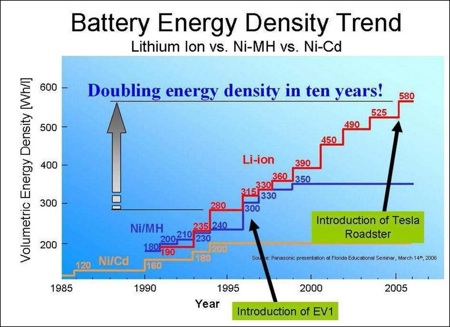The premise is this: dieoff says technology is not a substitute for oil.
In this post I will argue not only that technology is in fact a substitute for oil but that we've been using technological substitutes for an age and a day.
In the middle ages, we reached "peak wood" where Europe's population had soared due to the invention of better farming methods, and correspondingly, the hugely increased demand for wood depleted Europes forest. Subsequently, there was the great plague and replacement of wood with coal, but was there anything else notable that happened?
Why yes there was. Since the population collapsed, there weren't so many laborers available to for example, mill flour. So what happened?
The response was technology. More specifically wind.
Windmills and river mills were invented and this renewable power freed up labor to do other things, like go off and invent steam engines.
Other times technology has saved us are the taming of fire (we could cook tough plants previously unable to be eaten raw), the invention of agriculture, the green revolution etc.
So I guess we could say there is precedent for us escaping from bottlenecks.
Now we are faced with a bottleneck of how to get our energy system off of oil before it begins it's precipitous decline.
Hubbert himself argued that nuclear would be the next big thing. I won't call him a liar, but I will say that nuclear though it could do so all by itself, is not our only solution.
Every day we have more wind and more sunlight coming into the Earth energy system than our entire world consumption for a year.
It's also worthwhile pointing out that while oil in in imminent danger of depletion during the next decade, this is not true of either natural gas or coal. So any transition period could be partially backed up by natural gas or coal.
Both of these are good substitutes for oil if a little expensive to get them into liquid form. But we have plenty for now.
In the meantime, the build rate of wind is scaling up at 35% increase in global installed base every five years and accelerating. Likewise solar. Nuclear is hardly budging in North America and Europe but China is growing it's installed base of nuclear at half the rate it's growing it's wind. It's also worth pointing out that we have several regions with large installed bases of Nuclear already. i.e. they don't need any more. France and Ontario are two such regions. Sweden is another.
What does electricity have to do with oil depletion?
Plenty as it happens. Up till this decade the closest substitute for oil powered transportation such as automobiles and 18 wheeler trucks was biofuel and natural gas.
Well we have a glut of natural gas right now so that's not such a problem.
Previously, though, that was it. Sure there were electric trains and electric streetcars and trolley buses etc, but in many regions the streetcars and trolley buses are now gone and replaced with interstate networks.
In a pinch we *could* rebuild the streetcar networks and in fact, many countries are in fact doing so. The notable laggards are the UK, Canada and the United States.
To be fair, though, most Canadian cities already have electric mass transit systems of some sort. Even Calgary which is the oil capital, has the electric C-Train. Toronto's mass transit system is electric and world class.
But what about systems that are not point to point, like bus based networks or the logistics networks of supermarkets?
Well as it turns out we have a model for the logistics networks from 1950s Britain.
They are called milk floats. 30 mile range, slow moving lead acid battery powered delivery vehicles. Using even this basic technology combined with electric trains, the logistics network of the 1950s could even then have been run off of electricity.
Sadly, though, this technology fell out of favor and was replaced by the more versatile diesel truck with a higher speed and a better range.
In a pinch, however, if need be, we could get by with a 1950s logistics network.
But we don't have to. Batteries have advanced so much in the last ten years that we now have 13 ton trucks with a top speed of 65mpg and a range of greater than 150 miles. Easily adequate to run a logistics fleet.
If we ignore for a minute that in the same time frame they used streetcars and trolley buses in place of the diesel powered buses we have now, what are our current options?
Well as it happens, we also have in recent times developed high speed, decent range elecetric buses such as Proterra buses which can be charged to 80% capacity in 10 minutes. With a range of 100 miles, a ten minute charge gets an additional 80 miles.
This can easily be adapted to virtually any modern bus service.
Now the question will no doubt arise from our doomer friends: where will we get all the electricity to do this if we have millions of electric trucks and electric buses?
The answer is simple: we will build more gas plants, coal plants, nuke plants and more windmills.
Production capacity to build all these electric vehicles will take some time to ramp up but in the meantime it's very straightforward to convert to natural gas. And like New Zealand did in the 1970s during the last oil crunch (where they converted up to 10% of their fleet to natural gas) we will likely do the same, all the while, gradually building up an all electric fleet.
Now one point that's not been adequately covered is the rate of advance we've seen in the last ten years and then a comparison of where we are now and where we will be ten years from now.
When I originally freaked out after reading dieoff.org all those years ago, battery tech had hardly advanced since the 1950s. Sure there were NiCad and Nickel Metal Hydride, but the energy density and the range was only 2-3 times that of lead acid batteries. That meant you had literally tons of weight for a range of, say 50-70 miles which took 10 hours to charge.
Compared with a standard automobile or truck which could be recharged at a gas station in ten minutes by filling up and then drive for hundreds of miles, clearly the existing technology at the time was a poor substitute. I've already argued that it was a "good enough" substitute to keep the lights on and food in the supermarkets, but certainly not good enough to have all electric hummers.
Are we there yet?
i.e. can we have all electric hummers with a 200 mile range?
Unfortunately with the current best-of-breed batteries (Lithium Ion) we cannot.
We have 13 ton trucks with a 150 mile range than take ten hours to charge or can charge to 100 mile range in half an hour.
Likewise we have smaller personal automobiles like the Th!nk city with a range of about 100 miles which take 4 hours to recharge or else a range of 80 miles after a fast charge of 30 minutes. The Tesla Sportscar is similar. 200 mile range in ten hours or 150 mile range with an hour fast charge.
Clearly these are adequate to keep more or less the current paradigm running. They are not, however, a complete replacement.
Is a complete replacement even possible with batteries? Well with current generations of batteries no.
But there are several breakthroughs on the horizon it has to be pointed out.
There's this:
"Air fueled battery has 10 times the energy density of current lithium ion batteries"
So we could have a small car with a range of 1000 miles. Surely acceptable.
Do you think we could maybe have a Hummer with a 150 mile range?
There's this:
"New Lithium Battery can store three times the energy of conventional lithium batteries"
http://www.sciencedaily.com/releases/2009/05/090518111731.htm
So a 450 mile range on a small cheap car or else a hummer with a 75 mile range?
Acceptable to anybody? I'd say yes.
And there's this:
"MIT Lithium Battery could recharge in seconds rather than hours"
Hmmm. If we combine a 450 mile range battery with recharging in seconds, can we say that's a perfect replacement for what we have now?
And last but not least there's this:
"Project Better Place will provide a network of battery swap stations that will allow owners of electric cars to have a depleted battery swapped for a fully charged one in a drive through station like a car-wash, all in less time than it takes to fill the gas tank of a conventional car"
http://www.betterplace.com/solution/charging/
So unlike the opinion of the dieoff crowd that technology won't save us. I'd have to disagree. Not only will technology save us, but it will be a pre-existing old technology that will save us: the humble battery.
For those with more interest in this topic,
please also visit peakoildebunked and ghawareguzzler as well as sciencedaily, newscientist and greencarcongress.










No comments:
Post a Comment